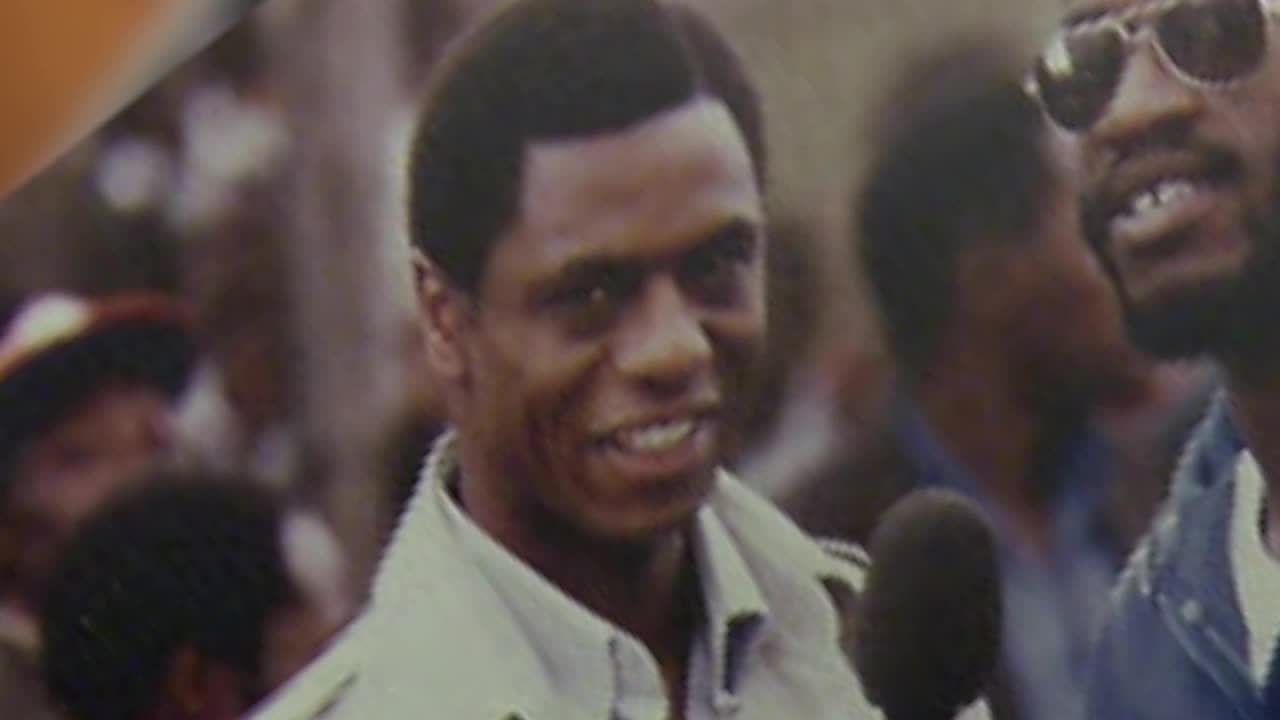Irv Cross’ widow opens up about late husband’s health following CTE diagnosis
[anvplayer video=”5165665″ station=”998122″]
Family, faith and football were important pieces of the late Irv Cross’ life.
The family of Irv Cross announced this week that Boston University CTE Center researchers diagnosed him with stage 4 chronic traumatic encephalopathy (CTE).
He died two years ago at the age of 81.
“It’s sad that CTE made him into a person he wasn’t,” said Liz Cross, Irv’s widow. “He was strong and athletic and upbeat and happy and loved life, loved god, loved his family. He just became somebody else.”
Liz Cross said her husband, who was diagnosed with mild cognitive dementia in 2018, often sat in a chair and grimaced from headaches that weren’t going away.

Irv Cross (Family courtesy photo)
The former NFL defensive back became the first Black man to work full-time as a sports analyst on national television for CBS Sports’ NFL Today in the 1970s.
Back in 2018, Irv Cross sat down with 5 EYEWITNESS NEWS reporter Eric Chaloux when he announced he would donate his brain to science after his death.
“Like so many retired pro football players, I’ve had some issues with my nervous system, my brain,” he said in that interview.
Irv Cross opened up about trying to find help while battling mild cognitive dementia. The former NFL star with the Philadelphia Eagles also championed trying to have kids not play tackle football until they were 14.
“We’re all on earth for a purpose. Your challenge is to find out what our purpose in life is all about,” Irv Cross said.
He wanted to make sure others don’t suffer, which is why he chose to donate.
“He was just a sweet thoughtful guy. He was really a treasure,” said Dr. Chris Nowinski, Concussion Legacy Foundation CEO, who knew Cross.
The Concussion Legacy Foundation is connected to the Boston University CTE Center researchers who are studying Cross’ brain.
5 EYEWITNESS NEWS is one of only a few news outlets in the world granted access to the Boston University facility.
Researchers say CTE is a progressive degenerative disease that has been found in people who have a history of repetitive head impacts. It’s believed the trauma triggers a degeneration of brain tissue, leading to symptoms that could include memory loss, confusion and impulse control problems.
Nowinski hopes Irv Cross’ donation gets researchers closer to being able to detect CTE while someone’s still alive and figure out a treatment.
“We need to get more scientists working on this so we have cures in the future for the next generation who follow Irv,” Nowinski said. “Irv has given so much back and is helping us understand how we can eventually treat and stop this disease.”
The Associated Press contributed to report.